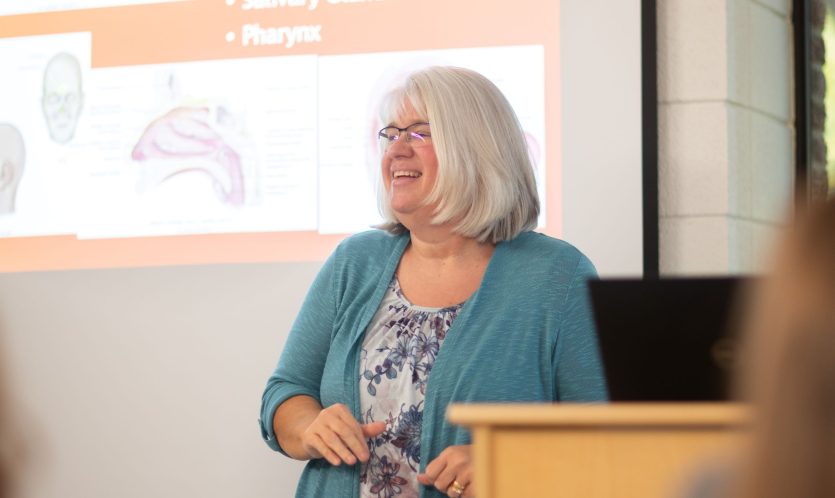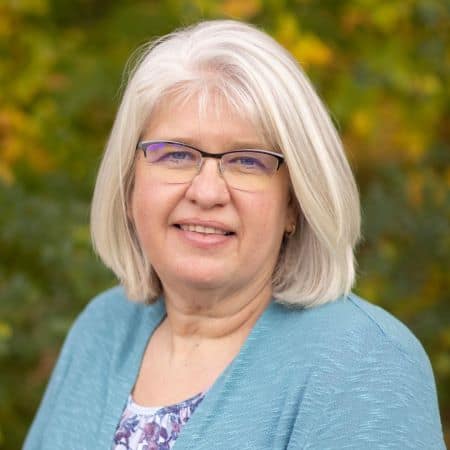
In her 14 years at Murray State University, associate professor Dr. Tonia Mailow, DNP, RN, makes it her priority to go above and beyond for students and support other faculty. She wears several hats in the School of Nursing and Health Professions – instructor for entry-level and graduate students, curriculum committee chair, and HESI coordinator, to name a few—but she says her main goal is always teaching.
When their nursing program decided to switch to Elsevier 360 for Nursing, Tonia says she could easily recognize how introducing new resources to their program can support student outcomes and add value to changes coming in nursing education.
Onboarding New Resources
Although their school started with HESI exit exams for some courses, which test students’ knowledge at the end of their level or course, they started adding specialty exams. For their program, HESI helps check the knowledge base of students. As the HESI Coordinator at the School of Nursing and Health Professions, she leads digital implementation and acts as a liaison between the HESI team and other faculty.

When Murray State moved online due to COVID-19, there was an even bigger need to bolster their program with digital resources. What may have seemed like a daunting task to incorporate new technology during a time of change was made easier with their partnership with Elsevier. Tutorials and direct connection to a support team helped create a seamless transition and make the most out of each product.
“Everybody’s been so good about making sure we’re taken care of,” Tonia says. “Every semester that we’ve been rolling into it, they always make sure with faculty coming that semester ‘do they need training in Sherpath, what do they need to do, do we need to help them set it up’. It’s been really good.”
The top priority for faculty at Murray State has always been the students—with Elsevier 360 the nursing program saved costs for students and had support from Elsevier to make sure all resources were available and easy to access to students who needed it. A separate student orientation also takes place, led by Tonia and her Elsevier representative, to ensure students fully understand what’s available to them.
“[Our Elsevier rep and I] make sure each student has access to the things that they’re supposed to in that first semester,” Tonia says. “Then I take a class period for my nursing assessment and I literally walk through it all.”

The hands-on approach with students that Tonia takes ensures they’re successful at every step of the process and puts their semester on the right track. In addition to digital resources that help make learning more engaging and trackable, her program also uses Elsevier textbooks as foundational content in their courses. Using Elsevier textbooks makes accompanying digital resources tie in effortlessly to their learning. Having a single solution provider not only makes onboarding and customer service easier, but it also meets all of their program needs as well.
“[We were] looking at the books first, and then seeing what other things were out there,” Tonia says. “Looking at our needs, we looked at SimChart—we needed an EHR as something that students could practice charting on—we needed those Clinical Skills videos so students could see how to do a procedure on a video before they come to lab. [We were] getting all our books and everything to the students and saying ‘it’s all right here, this is everything you’re going to need from now until the day you graduate’.”
Strengthen Student Learning
Now that they have Sherpath as part of their Elsevier resources, they lean on case studies and Elsevier Adaptive Quizzing (EAQ) within Sherpath to prepare students for class and strengthen their clinical knowledge. Tonia says most faculty use EAQ, which they feel gives students great exposure to NCLEX-style questions. Tonia uses EAQ in her nursing assessment course as an opportunity for students to earn bonus points by reaching Level 3 mastery on each chapter.
“I see it as the more questions you can do the better. [Students] come back later and they say ‘oh yeah, some of those questions were kind of out there, but I was learning how to read the question, how to pull the key word’, and I tell them ‘don’t use this as a study tool. You can’t just do questions and study for the exam. It’s a tool that will help you learn to read the questions’,” Tonia says.
She encourages students taking EAQs to read the rationale on all the questions, not just the ones they get wrong. This ensures they understand the concepts they need to do well in the course and the program.

When it comes to practicing clinical skills, faculty like Tonia lean on case studies and assignments along with Clinical Skills for every clinical class. To prepare students for applying what they’ve learned in the clinical setting, quizzes in Clinical Skills are used as tickets to class for labs. SimChart also allows students to create care plans and chart assignments which comes in handy when students don’t have access to hospital systems.
As they anticipate a new simulation lab, they hope to pull additional digital resources to work in addition to in-person simulation mannikins or clinicals. Tonia says clinical exposure will be even more important to prepare for the Next Generation NCLEX® (NGN) and tie clinical judgment back to the classroom.
“[We were] getting all our books and everything to the students and saying ‘it’s all right here, this is everything you’re going to need from now until the day you graduate’.”
Dr. Tonia Mailow, DNP, RN
“We get a lot of really good clinical experiences, but we just need to make sure students are understanding the concepts and meeting those competencies not only in the clinical but in the classroom as well. We need to make sure they got that knowledge base before we send them out there to take care of the patient,” Tonia says. “Being able to, on the [EAQ] mastery quizzes, now bring in those case study questions, those are really nice to be able to do that,” Tonia says.
Faculty at Murray State are mindful of changes coming with NGN in April 2023 and find it helpful that Elsevier has NGN questions integrated in both HESI and EAQ. Preparing now gives them a better chance to maintain their 100% pass rate they achieved last year.
Looking Ahead
Since they have gone through three semesters with their new resources, they still have two semesters to go before a whole cohort has progressed through the program. Their goal in the future is to do more regularly and to their advantage. Tonia says she knows change can be hard and faculty buy-in has been challenging at times, especially in the beginning. Knowing that they have supported has made it easier.
“Just getting faculty to buy-in and making sure they know what’s available is huge. I’m always trying to say ‘what do you need’?,” Tonia says.

Tonia recognizes that the ultimate result of student success comes from faculty working hard together towards their shared goal of giving students everything they need in their learning. She attributes her program’s 100% NCLEX pass rate to their ability to work together and support students, in addition to curriculum changes put in place. Using HESI data to tie the results together helps faculty see how they can maintain their success.
Tonia says she recommends taking it one step at a time and using the most valuable resources at her disposal first instead of trying to use everything at once. Her advice to other faculty? Don’t be afraid of change, take your time, and find what works for you.